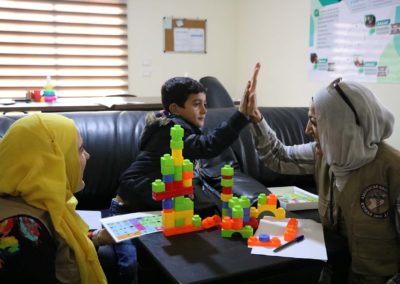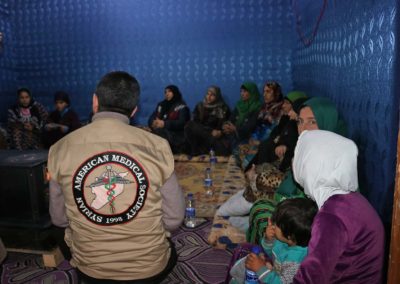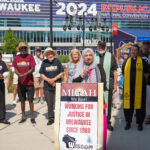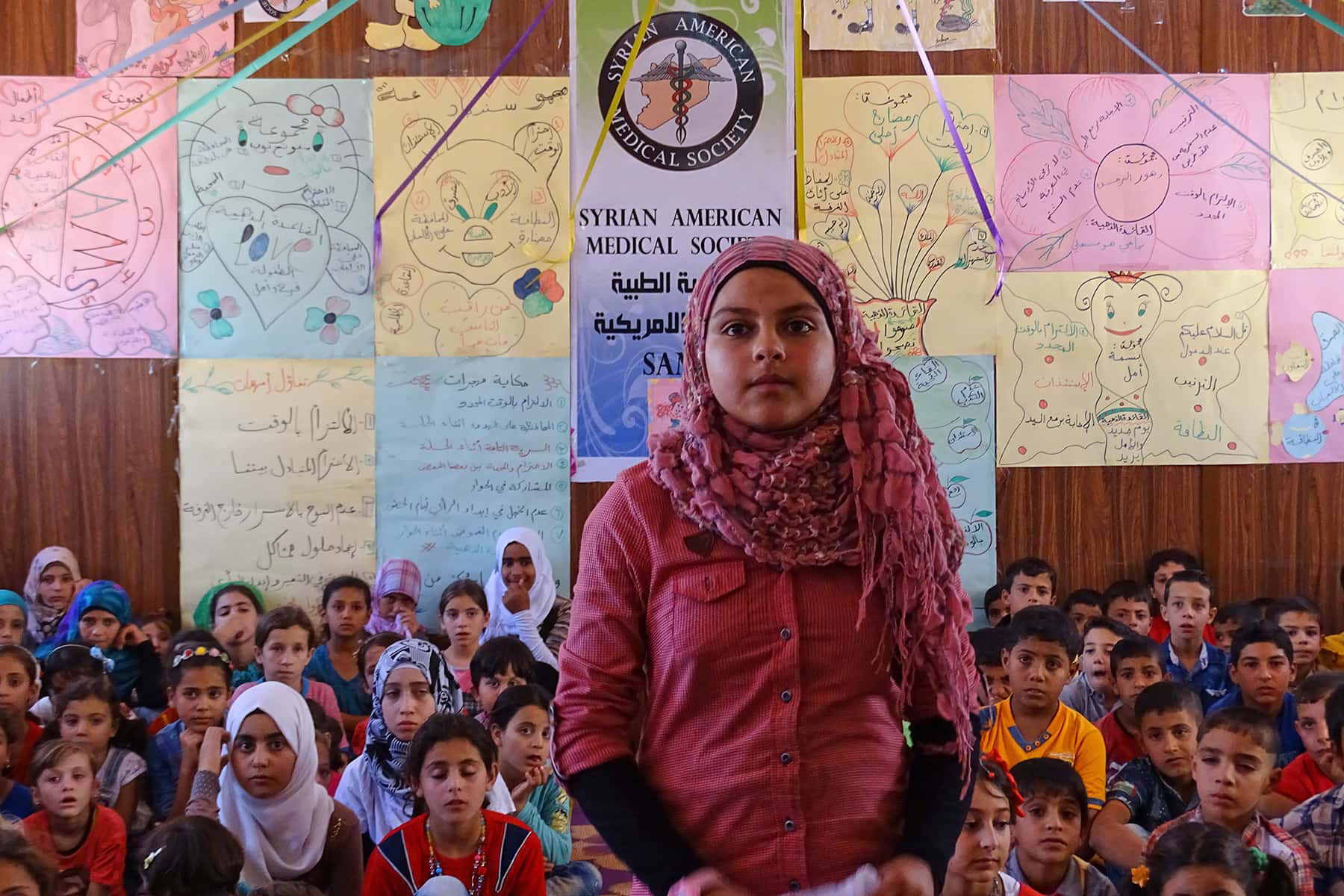
The psychosocial impacts of being a refugee are so widespread, they have reached epidemic proportions. But recognition or aid for those problems still fail to get the same resources as physical epidemics do, such as viral diseases.
There is no system in place to give Syrians and other refugees in need of mental health care the treatment they need. As a result, the Syrian American Medical Society (SAMS) is dedicated to providing continued, ongoing care to meet the long-term needs of those affected.
SAMS supports psychosocial programming inside Syria and in neighboring countries that facilitates therapeutic healing strategies and mental wellbeing for those affected by crisis. In Lebanon, for example, SAMS supports a psychosocial care program in Beka’a Valley to assist mothers and support healthy child-rearing practices, treat anxiety and speech disorders in children, and address the psychological wounds of victims of human rights violations.
“I was actually surprised by their psychological state of mind, even those at a young age, how much it is affecting their health as well. So it’s combined psychological and physical needs and I felt that the needs are huge,” said Dr. Katib.
Dr. Katib recently joined 24 other SAMS volunteers for the November 2018 medical mission to Lebanon. He and the other volunteers found that the immediate needs for families in the region were huge.
Prohibitively expensive medical care for what Americans would consider routine services, such as over-the-counter medicine, threaten to amplify the negative health consequences for an already vulnerable community. During the missions, SAMS volunteers treated nearly 1,000 patients.
Why Psychosocial Support
Treating mental health symptoms in refugees, internally displaced persons (IDPs) and asylum seekers is complicated by differences in language, culture, ways of coping with trauma and patterns of seeking help. The mere act of relocating can come with a number of different cultural, bureaucratic, developmental and safety-related obstacles that the experience becomes so vastly different for every refugee.
Although numbers vary according to country of origin, individual life experience, and host country, refugees are shown to have marginally worse mental health outcomes than the general population in any host country. Studies on the rates of PTSD and major depression in settled refugees range from 10 to 40% and 5 to 15%, respectively, further increasing in children and adolescents. For Syrian refugees, however, the numbers on PTSD incidence increase to a range of 36 to 62% for adults and 41 to 76% for children.
The most telling factors affecting the mental health of a refugee include demographic characteristics. For example, being older, a woman, from a rural area, highly educated were more detrimental than their counterparts, and stressors in their environment after relocation, like living in an institution, having restricted economic/work opportunities, being internally displaced,, having asylum or refugee status rejected, being banned from entering a prospective host country, and hearing of a homeland still in conflict.
Psychosocial Impacts on Syrian Refugees
The Syrian crisis itself has had a profound impact on mental health for Syrians, inside Syria and elsewhere. A hospital in Lebanon showed a marked increase in Syrians hospitalized for suicidal ideation and suicidal attempts after the crisis began.
Syrian refugees are also shown to have anxiety knowing their home country is still in crisis, hyper-vigilance about interacting with other people for fear of deportment, and further mental health stress when friends or family are denied refuge in their new country.
The dynamic relationship between past traumatic experiences, ongoing daily stressors and the overall disruption of core health and community systems leaves each individual with a unique psychosocial problem that needs to be addressed on the individual, familial and community level.
Psychosocial and Mental Health Care for Refugees
Studies have shown that in the best circumstances, a comprehensive array of programs can be the best way to treat the psychosocial impacts of forced migration. This would include social and psychotherapeutic interventions, generic mental health services, rehabilitation and even specialty programs for particularly vulnerable individuals. However, this is extremely hard to establish, especially in low-income regions where the majority of refugees are located.
The United Nations High Commissioner for Refugees (UNHCR) and World Health Organization (WHO) are largely responsible for mental health services for refugees and IDPs, however, with their increasing gaps in funding, mental health programs are nowhere near sufficient.
Psychosocial and Mental Health Programming from SAMS
SAMS documented the multi-dimensional nature of mental health disorders afflicting Syrians, including accounts of refugee experiences from Eastern Ghouta, Idlib, and beyond in a recent report. Human Devastation Syndrome, a term coined by SAMS Mental Health Committee Chair, Dr. Mohammad K. Hamza and a central piece of the research, describes the level of suffering Syrians have endured. No other term in the mental health lexicon fully encompasses the devastating mental effects of the Syrian crisis.
WMJ Series: Medical Mission to Lebanon
- Wisconsin doctors join medical volunteers treating Syrian refugees in Lebanon
- Attacks on health care in Syria add to ongoing social devastation
- After surviving the civil war, Syrian refugees suffer devastating trauma
- Photo Essay: SAMS volunteers bring urgent medical services to war weary
- Video from Lebanon: Wisconsin doctors share their experience helping refugees
- Volunteer medical services provide Syrian refugees with needed chronic care
